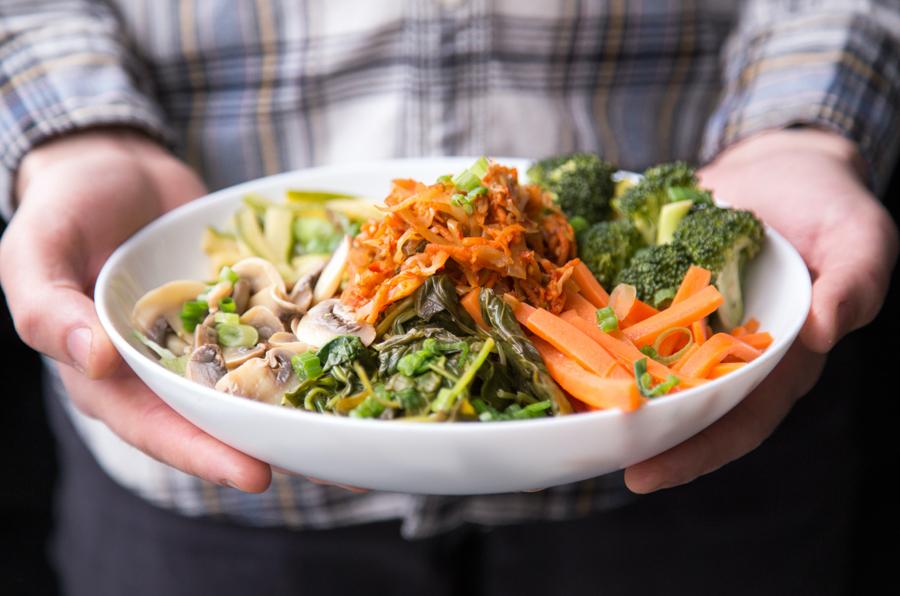These herbs, spices, and veggies will make your dishes more nutritious, a chef doctor says

Herbs, spices, and some vegetables are known to give natural flavors to your dishes but did you know that some of them have good benefits to your health?
In Wednesday's panel webinar discussion about food being essential to over-all wellness, Dr. John La Puma, a board-certified internal medicine and co-founder of ChefMD and Plant with a Doc, first differentiated the two. "An herb is a leaf on a plant," he said, while a spice "is everything in the plant — the seed, the root, the stem, the flower."
He mentioned some herbs and spices you can add to your dishes to make them tastier, and more importantly, more nutritious.
1. Bok Choy and other cruciferous veggies
La Puma said Bokchoy, — which is cruciferous or a vegetable that blooms with a four pointed cross — can "help detoxify poisons in the liver."
"There's a lot of other cruciferous vegetables like arugula, broccoli, wasabi, watercress, cruciferous vegetables help detoxify poisons in the liver," La Puma added.
"Some of its enzyme gets deactivated when you cook [Bok Choy]," La Puma began, "so all you have to do is add a bit of tiny raw back to the dish and the enzyme reactivates. Then you can detoxify poisons in your liver again just by that simple trick."
2. Rosemary leaves with thyme and Oregano
According to La Puma "there's a great study that shows that this inhibits" production of chemicals making the combination of rosemary and thyme healthier when you reel meat or when you marinate meat.
In a 2017 report, Medical News Today said rosemary "has been hailed since ancient time for its medicinal properties."
"Rosemary was traditionally used to help alleviate muscle pain, improve memory, boost the immune and circulatory system, and promote hair growth," Medical News Today wrote.
Meanwhile, Healthline said thyme has its "medicinal qualities such as ability to help treat acne and high blood pressure."
"Oregano is the same thing," La Puma said. "It's a strong anti-bacterial, all kinds of oregano."
According to WebMD, fresh oregano "has phytonutrients (thymol and carvacrol), which fight infections such as staph."
"It's loaded with antioxidants that help prevent cell damage, and it’s an excellent source of fiber, vitamin K, manganese, iron, vitamin E, tryptophan and calcium," WebMD stated.
Fresh or dry is perfectly ok to use, but he noted the difference: "Fresh gives you a burst of flavor while dry gives you, kind of a subtle note — almost like a savory note and those can be delicious."
La Puma said when dried spices are used "as a rub or as a marinate, the compounds are dissolved in the oil and the oil transfers the compounds to what you're marinating."
3. Turmeric
La Puma said there's great data that shows "turmeric prevents the progression of pre-diabetes to diabetes in patients who have elevated diabetes that don't have full blown diabetes yet."
The chef doctor suggested taking 3 to 5 grams of turmeric a day.
A tip: add a little bit of black pepper or the chemical piperine — "which makes black pepper spicy" — since it allows the curcumin in turmeric to be absorbed."
4. Cinnamon
Apart from cinnamon being "so round and spicy an makes everything sweet without adding sugar," La Puma said the spice "has been shown to lower blood sugar slightly with some people with the gene for it."
According to La Puma, bringing some fields outside of traditional medicine into medicine including culinary arts, agriculture, and horticulture can "contribute to how people get well to how they feel better and live in healthier, bigger and more embracing life."
La Puma said these non-medical fields "have all something to say in medicine and I think it needs to be at the table, and needs to be written on prescription slips. — LA, GMA News



